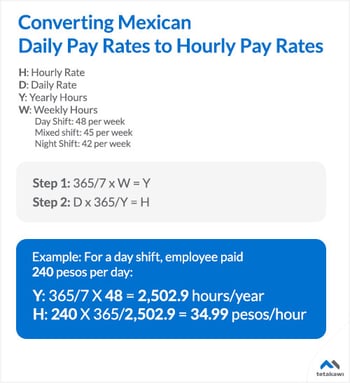Comparative labor costs play a pivotal role in strategic decision-making for companies considering expansion into new markets, such as Mexico. Understanding how labor costs compare across different regions and countries is essential for optimizing operational efficiency and maximizing cost savings. In the context of Mexico, where manufacturing is a key economic driver, comparative labor costs encompass various factors, including wages, benefits, and regulatory compliance expenses.
By conducting thorough analyses of comparative labor costs, businesses can identify cost-effective solutions while maintaining quality standards and adhering to legal requirements. This proactive approach empowers companies to make informed decisions regarding site selection, workforce management strategies, and resource allocation, ultimately driving sustainable growth and competitive advantage in the global marketplace.
Overview of Labor Costs in Mexico's Manufacturing Sector
One of the main benefits driving companies to invest in manufacturing operations in Mexico is the competitive pay for highly skilled workers. However, as in any locality, pay rates range based on the type of work being performed and the specific region where operations are located.
Pay rates also vary based on the technical skill required of a worker. However, what truly makes the competitive pay in Mexico stand apart from other countries is that it often covers high-quality services from a trained workforce. Because manufacturing is prevalent in industrial clusters across many regions, there are many training institutions preparing employees for skilled positions in your operation.
Before determining the right site for your manufacturing operations, it’s important to understand what you’ll be expected to pay your workforce.
To learn more about labor costs and wages in Mexico, listen to our podcast below:
How Are Hourly Wages in Mexico Calculated?
 You’re not likely to see hourly wages when researching competitive pay in Mexico. That’s because Mexican federal law dictates that wages be expressed as a daily rate of pay that is paid for all 365 days of the year. This gross daily pay rate is used to calculate certain benefit entitlements, such as severance pay, and to determine applicable overtime rates. Taxes and employer contributions for benefits such as income taxes and social benefits are exempt from this daily rate, although they are included in the total compensation costs.
You’re not likely to see hourly wages when researching competitive pay in Mexico. That’s because Mexican federal law dictates that wages be expressed as a daily rate of pay that is paid for all 365 days of the year. This gross daily pay rate is used to calculate certain benefit entitlements, such as severance pay, and to determine applicable overtime rates. Taxes and employer contributions for benefits such as income taxes and social benefits are exempt from this daily rate, although they are included in the total compensation costs.
While it’s common to see references to employees’ daily pay rates, professional and administrative employees are more likely to earn monthly or annual salaries. Making matters more complex for hiring managers, many employees who do earn daily rates may, in fact, be unaware of the amount of their gross daily rate. It’s more typical for employees to know their weekly take-home pay, after taxes and deductions. Understanding this can help hiring managers better position their competitive rate of pay as a hiring tool for potential recruits.
Learn more about how to calculate wages in Mexico.
Fully Burdened Labor Rates for Factory Workers in Mexico
There are two categories of pay for manufacturing workers in Mexico: direct and indirect (or salaried) positions. Salaries will vary depending on the skill level demanded by the employee. In 2024, the daily minimum wage in Mexico will rise by 20% to MXN $248.93, or approximately USD $13.83, while the Northern Border economic free zone will see an increase to MXN $374.89, around USD $20.83, using an exchange rate of 18 USD to MXN. However, most workers in the manufacturing industry earn more than the minimum daily wage. As the chart below shows, the average fully fringed wage in Mexico for an unskilled direct laborer is in the range of USD $4.18 per hour. More skilled direct laborers, such as CNC machinists who may have several years of training to gather the computer-based skills needed for this precision job, may make in the range of USD $8.16 per hour.
| Wages in Mexico: Average Fully Fringed Hourly Labor Rates for Direct Labor Employees | ||||
|---|---|---|---|---|
| Job Title | Border | Northeast | Northwest | Bajio |
| Unskilled Labor | $4.88 | $4.28 | $4.20 | $4.18 |
| Semi-Skilled Labor | $5.79 | $5.08 | $4.98 | $4.96 |
| Painters | $7.00 | $6.14 | $6.03 | $6.00 |
| Welders | $7.91 | $6.94 | $6.81 | $6.78 |
| Machinists | $8.68 | $7.62 | $7.48 | $7.45 |
| CNC Machine Operators | $7.44 | $6.53 | $6.41 | $6.38 |
| CNC Machinist | $10.84 | $8.35 | $8.19 | $8.16 |
Download List of Average Manufacturing Wages in Mexico
Indirect positions (see chart below) show a similar range, although these administrative or management-level positions in Mexico tend to begin at a higher starting salary than their direct labor colleagues. This range might include production team leaders, who provide support for machinists, welders, and other direct labor positions and earn an average of USD $7.17 per hour, to materials planners, who effectively coordinate the flow of raw materials to keep the schedule running efficiently, and may reap an average salary of USD $18.52 per hour for that skillset.
| Wages in Mexico: Average Fully Fringed Hourly Labor Rates for Indirect Labor and Salaried Employees | ||||
|---|---|---|---|---|
| Job Title | Border | Northeast | Northwest | Bajio |
| Plant Manager | $76.57 | $51.27 | $50.30 | $50.10 |
| Production Manager | $46.60 | $31.20 | $30.61 | $30.49 |
| Manufacturing Engineer | $23.01 | $15.41 | $15.12 | $15.06 |
| Group / Team Leader | $9.53 | $7.34 | $7.20 | $7.17 |
| Production / Materials Planner / Scheduler | $28.31 | $18.95 | $18.60 | $18.52 |
| Quality Control Engineer | $29.18 | $19.54 | $19.17 | $19.09 |
| Material Handler | $7.54 | $5.81 | $5.70 | $5.68 |
| CNC Programmer, Engineer | $18.54 | $12.41 | $12.18 | $12.13 |
| Bilingual Administrative Assistant | $7.78 | $5.21 | $5.11 | $5.09 |
Download List of Average Labor Rates in Mexico's Manufacturing Industry
Of course, these averages are based on a wide range of pay scales across Mexico. Metropolitan areas with high demand for certain skillsets will be pushed to pay more than rural areas with a much deeper hiring pool.
Pay rates may also seem to vary for different types of shift work. While daily rates of pay may remain constant for afternoon and night shifts, the weekly hours decrease, so the hourly cost increases.
How Can You Calculate Your Own Payroll Costs In Mexico?

In your target manufacturing region in Mexico, there will be variation, as well. While some organizations may opt to focus on competitive wages, it may be more useful to offer a broader benefits package. Ultimately, it depends on the expectations set by companies competing for the same skill sets in your region.
It’s also important to keep in mind that employee pay is only one piece of the cost puzzle. Companies focused solely on low pay may overlook the high cost of shipping products from a region or the need to invest in training for a specific skill set.
To better understand regional expectations and get the full picture of what your payroll costs could or should be in Mexico, use our free online payroll calculator to instantly calculate your costs.
Subscribe
Sign up and stay informed with tips, updates, and best practices for manufacturing in Mexico.






